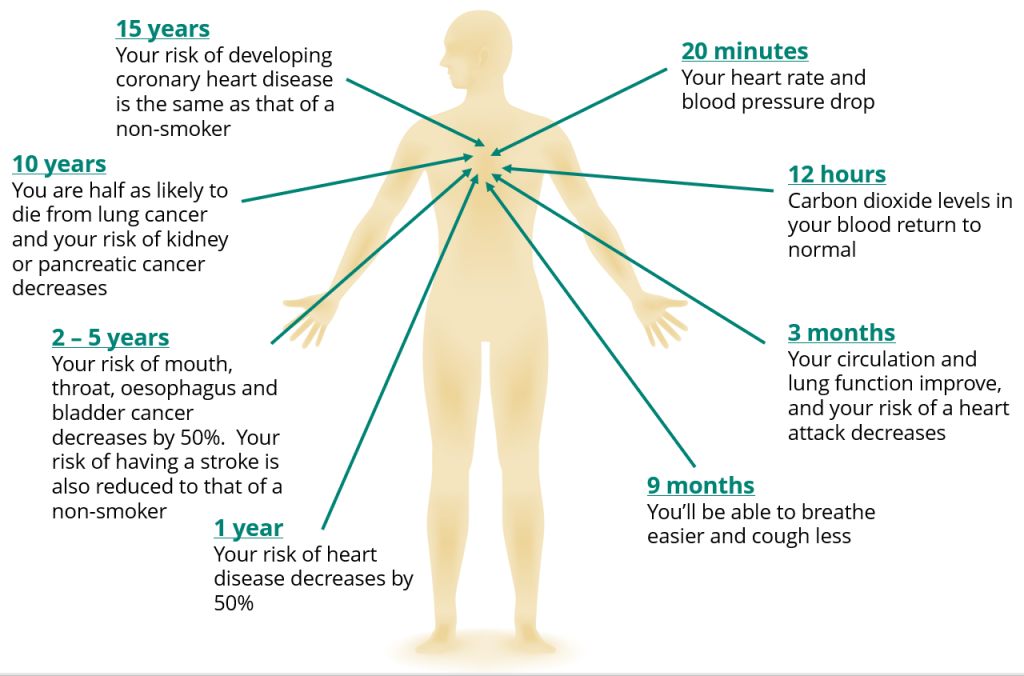Advice if you smoke

Smoking increases the risk of developing the well-known complications of diabetes. Smoking also raises your blood glucose levels and increases your body’s resistance to insulin (due to nicotine).
Smoking significantly increases the risk of a heart attack or a stroke. As people with diabetes are already at higher risk of this due to diabetes, the total risk increases about four-fold. Furthermore, experts agree that smoking (tobacco) is the single biggest avoidable cause of cancer in the world.
Health benefits
The health benefits of stopping smoking are huge and immediate:

What support is available to help me quit?
The good news is that there is a lot of support available to help you stop smoking. The first stop for many is their GP or healthcare professional. They can signpost you to local programmes that are free to attend and are staffed by expert advisers that will help find the best method to quit.
Sometimes this might be a group support session or a one-to-one meeting with a smoking advisor. Overall you are 4 times more likely to stop smoking for good if you engage with an NHS Stop Smoking Service that can offer a mixture of different treatments. To find what Stop Smoking Services are available in your area, put your postcode into the finder on the NHS Smokefree website.
We live now in a digital age and there are many digital tools that you can use to help you quit. Have a look at the NHS Smokefree website which has lots of information and you can design your own personal plan. They also have their own Smokefree app which is available to download for free on both the Apple App Store and Google Play.
Tips to help you quit
Making the decision to quit is the first big step, we’ve put together some tips below to help you on your journey to being smoke-free:
Set a date:
- Setting a date gives you time to prepare and increases your chance of successfully quitting.
- Try to choose a date that avoids situations where you would be tempted to smoke, such as at the pub or other places where people around you would be smoking.
- Setting a date in advance gives you time to get rid of any cigarettes, lighters or matches and to engage with Stop Smoking Services to support you when you quit.
Remember why you are quitting:
- Reminding yourself why you want to quit helps you to stay motivated.
- Writing these reasons down and looking at them every time you feel like smoking can be a great tool to help you resist the craving.
Stop Smoking Services:
- Engage with your local Stop Smoking Services so that they can help work out the best plan for you.
- If you’d prefer to do it yourself, then the Smokefree app is great to give you mobile support, expert advice and a 4-week tailored plan with daily support messages.
Plan for cravings:
Everyone has their own way of coping, whether that’s nicotine replacing therapy or distracting yourself by staying busy. It’s good to think about this before you stop so you have a strategy in place to deal with the cravings
Further information
For more information on the science and evidence behind quitting smoking, have a look at the DocMikeEvans video below.



Leave a Reply
You must be logged in to post a comment.